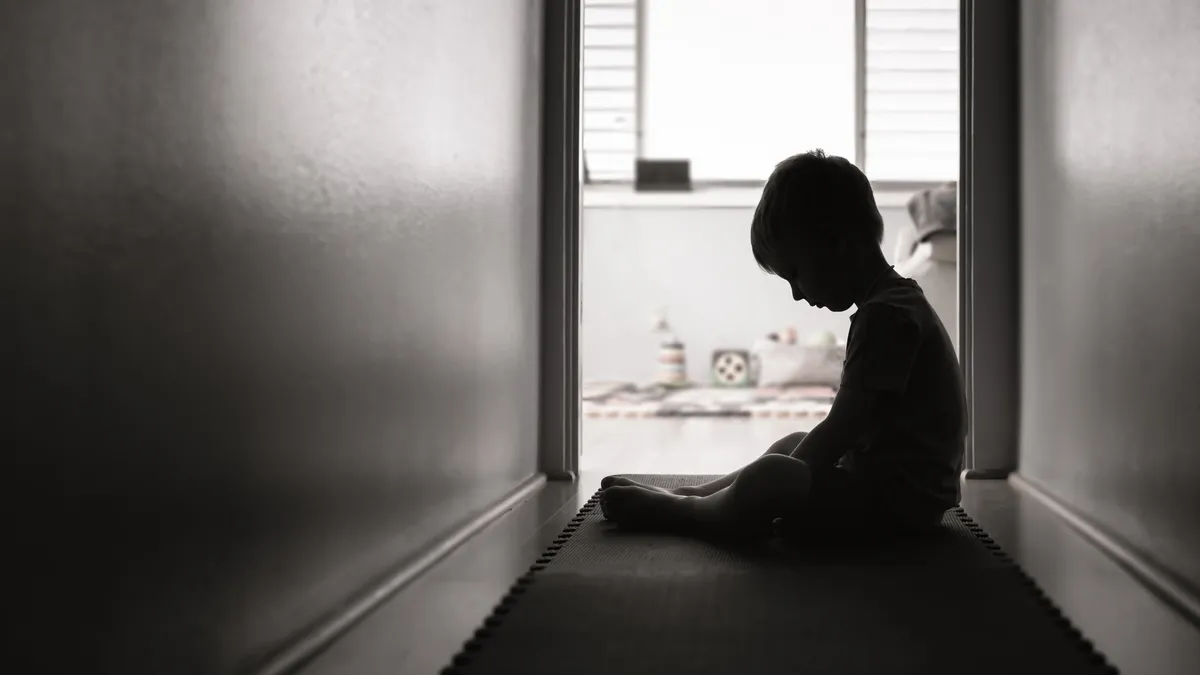Dive Brief:
- Preschoolers who receive mental health services are less likely to be diagnosed with a disability, according to unpublished research from Youth Research Inc., a nonprofit that supports New York’s Office of Children and Family Services and local agencies.
- The research also found each adverse childhood experience (ACE) in a preschooler increased the odds of a disability diagnosis, such as speech disorder, developmental delays, autism, and attention-deficit/hyperactivity disorder, by 25%, according to Erica Webster, a policy advocate at Youth Research Inc. Webster shared the study’s findings this month during the National Association for the Education of Young Children's annual conference in Washington, D.C.
- Additional ACEs do not necessarily cause a disability, but the acknowledgment of a child's stress and trauma should be part of the conversation in planning for interventions such as mental health and family services, Webster said in an interview after the conference.
Dive Insight:
While the harm of ACEs on childhood development has been well-studied, Webster wanted to look specifically at their connection to disability diagnosis, as well as the potential impact mental health supports would have on a disability diagnosis. Her research found mental health care decreased odds by 27% of a disability diagnosis in preschoolers.
"If we can catch them before they're school-aged and put in some positive supports or protective factors, like mental health care, then that can make a lasting impact," Webster said.
In addition to promoting mental health supports for preschoolers, Webster said she also hopes her research shows educators, parents and advocates the need for holistic services for children rather than siloing services based on a certain traumatic event or disability.
"That risk of them having ACEs is not their destiny," Webster said. It's "what can we do to support that child in being resilient, as well as prevent the accumulation of future ACEs?"
Webster's research is based on the 2016 National Survey for Children's Health preschool subsample of 3- through-5-year-olds, which came from parent or caregiver reported data from 7,565 nationally representative participants.
Webster also discovered that of the preschoolers with two or more ACEs, 13% of those young children's parents or caregivers were told by a doctor their child had behavioral or conduct problems. Fewer than 4% of the children with low or no ACEs had behavioral or conduct challenges.
Of the children who had experienced an ACE, the most common one was financial – specifically, difficulty getting by on a family's income. The next most common one was separation or divorce.
Regarding disability diagnoses, higher ACE counts were associated with increased prevalence of disability for each category examined, including speech disorders, developmental delays and learning disability.
"I'm not necessarily saying that ACEs cause kids to have disabilities, but that there's a strong connection, and that was kind of my key takeaway message — that lots of times, it's the kids who have a disability who maybe require a little bit of extra care, and that family may experience extra stress if there's not support in place," Webster said.
The data Webster studied did have limitations, she said. A majority in the sample did not use mental health care and were White, affluent and did not have ACEs. There was also no information about what constituted mental health care, including the quality or frequency of services.
One major challenge is that access to mental health supports is limited for families most in need, Webster said. Proven practices exist like home visiting programs, parenting education and coordinated care can be inaccessible due to lack of money, time or staff, she said.
That part can weigh heavily on classroom teachers, Webster said. "I think the part that the educators really struggle with is they feel like everything's on their shoulders."
Webster's research is currently under peer review.











